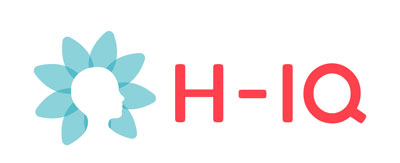The coronavirus has turned American education into a vast uncharted experiment, in which we are all both the experimenters and the guinea pigs. As one teacher commented in Education Week about the move to remote, on-line learning, we are “operating in the wild, wild West.” New York City Schools Chancellor Richard Carranza said, “we’re building the plane as we’re flying it.”
The experiment is on-line education, also known as distance learning. At H-IQ, we want to know how you are adapting and what you think of the on-line learning experiment. What are your thoughts as you build and fly the plane? E-mail us your thoughts at the address below.
Here’s what we’ve heard from colleagues so far:
- Technology Gap: Low-income students have no laptops or tablets, or even access to the internet.
- Absentee Students: Boston public school teacher, Taylor Roberts, told the Boston Globe that she “hasn’t heard from nearly a third of her students in weeks.” In Los Angeles, superintendent Austin Beutner estimated that up to 40% of the elementary students have not logged on even once as of the first week of April.
- Reduced Attention: The focus of the classroom is dispersed. Teachers see their students log on for class in their pajamas. A grade-school student answers a question from the back seat of the family car. Students mute the on-line class to attend to the myriad of internet distractions – texts, social media, video games, and chats with friends.
How will this experiment affect teaching after the pandemic? Will students return to school classrooms? Or, will there be a trend toward more on-line education?
Already, marketers of on-line education see an opportunity to seize a permanent role in American education. Sal Khan, founder of the on-line Khan Academy wrote in the Wall Street Journal:
“[The school closings] may bring about profound changes in how we school our children. In the coming year, students and teachers may need to break down barriers between in-person and at-home schooling, and be ready to shift from one to the other with little notice… But it may be the catalyst for making personalized learning more common.”
(Personalized learning is a marketing term for computerized learning.)
Educators, parents and students must evaluate their experiences rigorously and subjectively. There are no control groups to validate any findings. There will be no explicit data.
While once seen as the wave of the future, on-line learning was never widely adopted. A 2016 study by the three largest charter school advocacy groups documented 180,000 students enrolled in 135 exclusively on-line charter schools. They also found “large-scale under-performance” in these on-line charter schools, writing: “If traditional public schools were producing such results, we would rightly be outraged.”
Now, early in the experiment, many high school students are already rejecting continuing on-line education. Niche, a school rating service, asked 75,000 high school students: is on-line education the future for schools? Students rejected the idea: 77% said no, 41% who said no were adamantly opposed, and only 8% said yes.
Derek Newton of Forbes wrote that students having tried on-line education will say “we tried it, we hated it.”
We at H-IQ believe that education is a profoundly human endeavor unsuited for systematic machines. We must learn and practice in person, face-to-face, the best traits of our species – collaboration, empathy, and intelligence.
Let us know how this vast distance learning experiment is working for you and your students. Email Dan Hunter with comments at: dhunter@hunterhiggs.com.
During the Covid-19 pandemic, H-IQ is free for teachers and administrators. Learn more about H-IQ and our free pilot program for grades 5-12 here.





